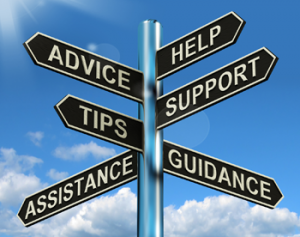
Greetings from 
We would like to introduce a few of our new employees who have recently been added to our staff.
Michele Sivard is our new Planner’s Assistant. She will be working closely with our Planners, Garry Stacey, Richard Brannan, & Michael Hankins, as well as the other Valliant Foremen. Each week, our foremen submit a weekly work schedule for the following week. Michele will be creating job packets for all jobs, ensuring that all permits, work orders and safety forms are part of each packet. 
We also have added two gentlemen to our Safety Team, Dylan Rudisill and Oscar Sanchez. Some of you may have already received Safety Training updates from Dylan. Oscar will be spending the majority of his time doing field audits and making sure all of our employees are working safely.
If you receive an email or any other form of communication from any of these people, you will now have a face to place with the name. Please help in making our new employees feel welcomed!


Tri-Lakes Services, Inc. Pipe Crew
Not pictured: Ricky Hostetler

| Kelly Harp 11/6/2007 | Kolten Lambe 11/11/2017 |
| Dale Jordan 11/2/2009 | Jimmy White 11/11/2017 |
| Richard Pitt 11/7/2011 | Eric Barrett 11/22/2017 |
| James Evanski 11/13/2012 | Justin Bailey 11/19/2018 |
| Alvin Abney 11/26/2013 | Collin Finley 11/19/2018 |
| Shawn Gribnitz 11/3/2014 | Kenny Golston 11/19/2018 |
| Justin Hoover 11/17/2014 | John Womack 11/19/2018 |
| Nathan Stone 11/18/2014 | Hayden Harp 11/20/2018 |

Grief Counseling 
Grief counseling services are offered with MetLife’s life insurance coverage. Whether it’s to help cope with the loss of a loved one or a major life change, such as a divorce being finalized, serious health issues or a layoff/termination, the professional counselors and services that are offered through LifeWorks are ready to support you and your family, so that moving forward will be a little easier.
There are counseling sessions tailored to meet any individual’s needs. You can receive up to 5 in-person or telephonic sessions with a licensed LifeWorks counselor. LifeWorks also offers confidential legal and financial consultations with one of their in-house attorneys or certified financial planners, as well as funeral assistance services that help with making funeral arrangements.
Support is available 24/7. Call (888) 319-7819 or visit www.metlifegc.lifeworks.com
- User Name: metlifeassist
- Password: support
 What is Metabolic Syndrome?
What is Metabolic Syndrome?
Basically, “metabolic syndrome” is the name for a group of five health risk factors. To be diagnosed with it, you must have three of the five risk factors. The risk factors include a large-round waistline, high triglyceride levels, low HDL cholesterol levels, high blood pressure, and high fasting blood sugar. Metabolic syndrome can cause heart attack, stroke, hardened arteries, kidney disease, non-alcoholic fatty liver disease, and diabetes. These conditions effect more than just your physical health, it can effect your overall well being too. The good news is that with metabolic syndrome, your choices do matter: Live an active & healthy lifestyle to help reduce your risk.

